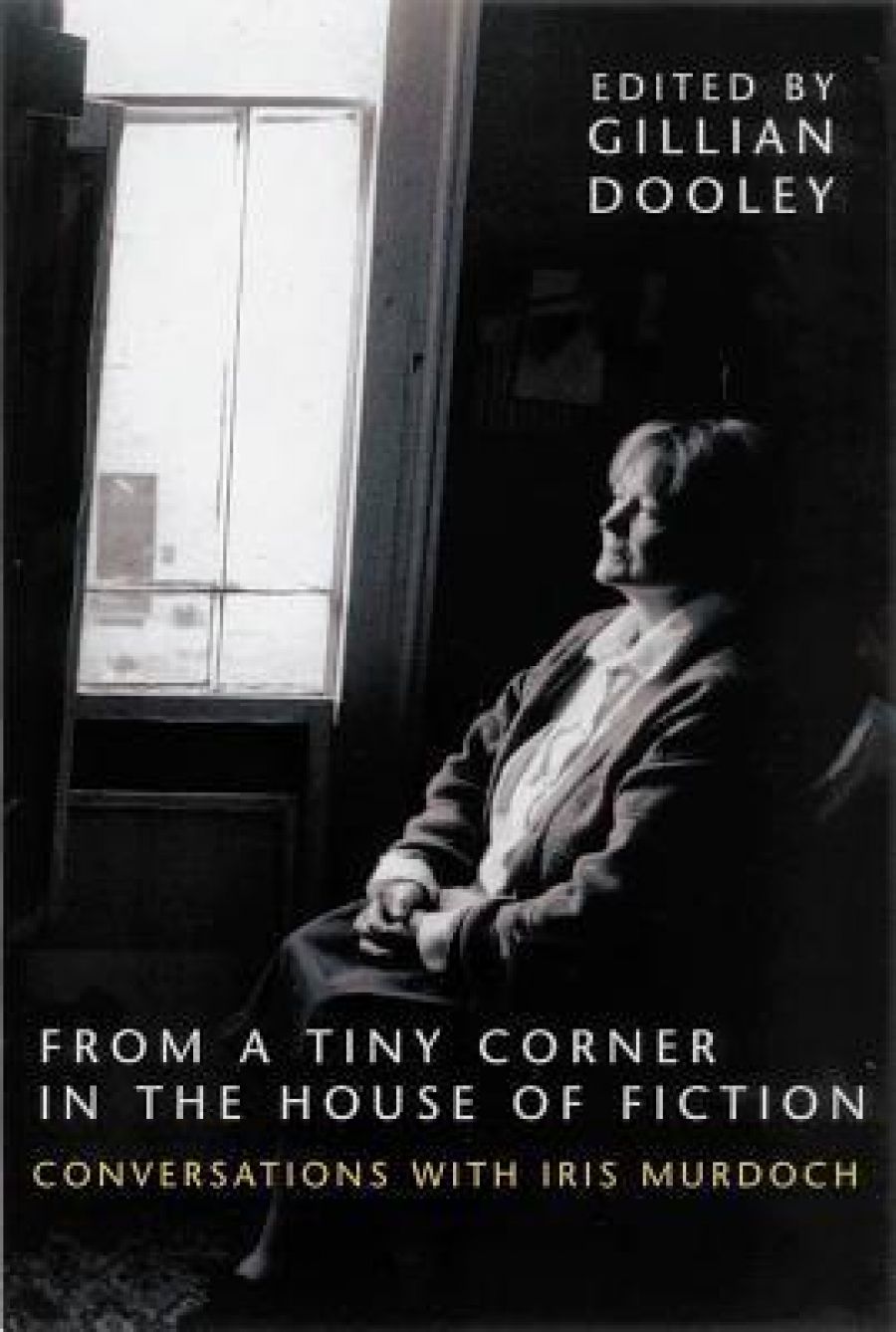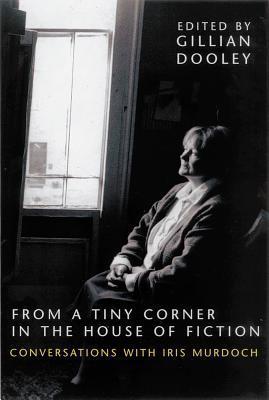
- Free Article: No
- Contents Category: Literary Studies
- Review Article: Yes
- Article Title: Rescuing Iris
- Online Only: No
- Custom Highlight Text:
Iris Murdoch’s first book of philosophy, Sartre: Romantic Rationalist, was published in 1953 when she was thirty-four years old. A year later, Under the Net appeared, her first published novel. If not for the war and its aftermath – Murdoch worked for the United Nations Relief and Rehabilitation Administration for two years – her first published works may have appeared earlier. And yet the years 1944 to 1953 provided fertile ground for the novelist. It was the period of her deep attachments with the great writers and philosophers (Raymond Queneau, Elias Canetti and Franz Steiner) who would seed many of the fictional characters in her future work. She wrote several novels before Under the Net – four or six, she was never quite clear. And for more than forty years she wrote prodigiously: twenty-six novels, five works of philosophy, several plays and a collection of poetry.
- Book 1 Title: From a tiny corner in the House of Fiction
- Book 1 Subtitle: Conversations with Iris Murdoch
- Book 1 Biblio: University of South Carolina Press, US$34.95 hb, 297 pp
- Book 1 Cover Small (400 x 600):

- Book 1 Cover (800 x 1200):

While most of Murdoch’s novels are now back in print under the Vintage Classics imprint (perhaps the only positive spin-off from the Bayley collection), Gillian Dooley’s collection of twenty-three interviews and conversations with Murdoch provides a welcome opportunity for the philosopher and writer to speak again in her own voice. And she does, fluently, elegiacally and with deep intelligence.
A concern with art and morality infiltrates many of these conversations. For Murdoch, and of no surprise to readers of her fiction, the task of the novelist is a moral one:
You can be unselfish and truthful in your art, and a monster at home ... Great art is connected with courage and truthfulness. There is a conception of truth, a lack of illusion, an ability to overcome selfish obsessions, which goes with good art, and the artist has got to have that particular sort of moral stamina. Good art, whatever its style, has qualities of hardness, firmness, realism, clarity, detachment, justice, truth. It is the work of a free, unfettered, uncorrupted imagination ... A novelist is bound to express values, and I think he should be conscious of the fact that he is, in a sense, a compulsory moralist.
(Interview with Jeffrey Meyers)
Her interest in religion is explored with many of the interviewers. ‘Religious experience,’ she says, ‘is something we should be having all the time.’ She wants a sense of religion, stripped of dogma, which has the individual looking out beyond the self: ‘[O]ne must pass beyond the image of the personal God ... towards godhead or divinity.’ She is influenced by Christianity, but has grown apart from it. Still, aspects endure because they are fundamental: ‘[T]he way in which we can pass beyond egoism towards more open recognition of the reality of other people and the importance of other things, and beyond illusions to reality, and beyond falsehood to truth ... that in the recognition of truth there is also the recognition of virtue.’ (Interview with Jonathon Miller). She insists on separating her philosophical writing from her fiction:
I have definite philosophical views, but I don’t want to promote them in my novels or to give the novel a kind of metaphysical background. Of course, any seriously-told story may have metaphysical aspects and will certainly have moral aspects ... But, I don’t want philosophy, as such, to intrude into the novel world at all and I think it doesn’t.
(Interview with Biles)
The novel is, above all, a work of the imagination, with its own coherence and integrity. Murdoch dismisses any suggestion that her fictions are autobiographical, stressing the necessity of the writer to ‘unself’ herself. Her influences, however, in both her fiction and philosophy are the same: Shakespeare (she is saturated in Shakespeare), Dostoevsky, Wittgenstein, Plato, Kant, Tolstoy, James, Proust.
Love, she says in her interview with William Rose, is her main subject:
Love obviously in its genesis belongs with sex, but it’s able to transcend sex – I don’t mean in any sense of moving away from carnal expressions of sex but simply that sex is a very great mystifier, it’s a very great dark force. It makes us do all kinds of things we don’t understand and very often don’t want to do. The kind of opening out of love as a world where we really can see other people and are not simply dominated by our own slavish impulses and obsessions, this is something which I would want very much to explore and which I think is very difficult.
She believes the novel is essentially a comic form, and it is true there is much humour in her fiction, as there is in these interviews. ‘I’m afraid the excitement has gone out of everything at the moment, for everybody – except a few Scottish Nationalists,’ she says to Sheila Hale. And her solution to removing characters from a novel? ‘[Y]ou don’t want to kill them all ... you send them to Australia,’ she states during the Todd symposium. And an aside made in the interview with Meyers: ‘I think some of D.H. Lawrence’s work is spoiled by too much Lawrence.’
There are repetitions in these interviews: factual material about her life (the Irish connection, the loving family); how she writes her novels (all worked out beforehand; no surprises for her once the writing begins); and more abstract reflections on art, philosophy and religion. The repetitions are not irritating because, as with anything worthwhile, one wants to study the ideas. At the end of the interviews – or rather, until the last two – there is a sense of being soaked in Murdoch’s intellect and sensibility, and a desire to revisit both the novels and the philosophy.
This is an excellent collection for new writers. In particular, the 1978 Symposium in France on Murdoch’s work, the closing debate of which is included, reveals crucial insights into characterisation and plotting, and Meyers’s Paris Review interview (1990) also carries a wealth of information on the writing process. It is also an excellent collection to learn about interviewing technique: how to do it (Meyers, Miller, Simon Price, Haffenden); and how not to (Heusel, Pitchford).
In the second last interview (conducted by Joanna Coles in 1996, when the early signs of Alzheimer’s were obvious), Murdoch the artist, that person with ‘moral stamina’, is still in evidence, along with her own heart-rending consciousness of what she is losing. It is distressing as a reader to witness this, but the remarkable woman is still there. In contrast, the last chapter in the book, written by Robert Weil, Bayley’s publisher, is entirely self-interested, and does not do this fine collection justice.
There are two major omissions: Brian Magee’s dialogue with Murdoch on philosophy and literature (in Talking Philosophy,1978, which was reprinted in 2001, possibly explaining its omission by Dooley) and Olga Kenyon’s interview, which reveals snippets of information not covered in this collection (Women Writers Talk, 1989). These aside, the collection is rich and satisfying. Iris Murdoch was a great novelist and a challenging thinker. Cooley’s book is a significant contribution to the Murdoch canon, one that strengthens Murdoch’s enduring voice.
* A.N. Wilson’s ramshackle yet readable book, Iris Murdoch: As I Knew Her (2003, Hutchison, 0 09 174246 3), sets out to right the wrongs of the Bayley collection and the film by redirecting attention back to the life and work of a remarkable and flawed woman. While there are some fascinating and (to those familiar with Murdoch’s work and life) not surprising insights into the Bayley–Murdoch marriage, this book hides more than it tells. Despite his expressed affection for Bayley and Murdoch, Wilson is more critical than admiring with his numerous asides about, for example, Murdoch’s drinking, the collapse of her fiction, and Bayley’s power and cunning. It would appear that Wilson has his own – unstated – agenda. This is not surprising, given that in the late 1980s he was appointed by both Murdoch and Bayley as the official Murdoch biographer. Wilson began the biography, but omits to relate how the job passed to Conradi.


Comments powered by CComment